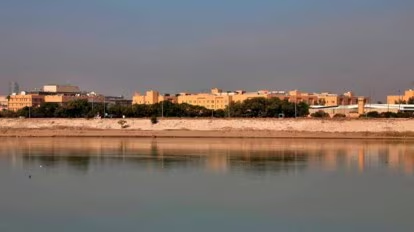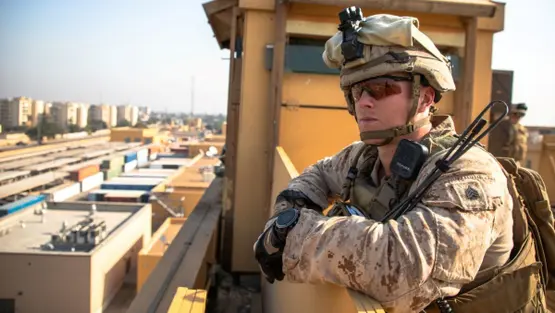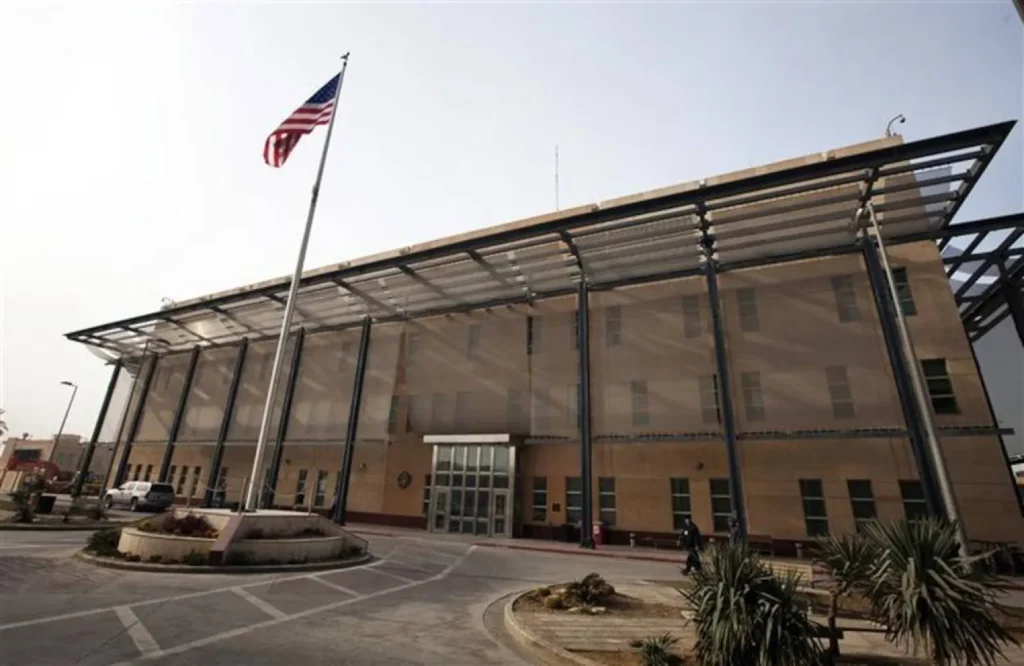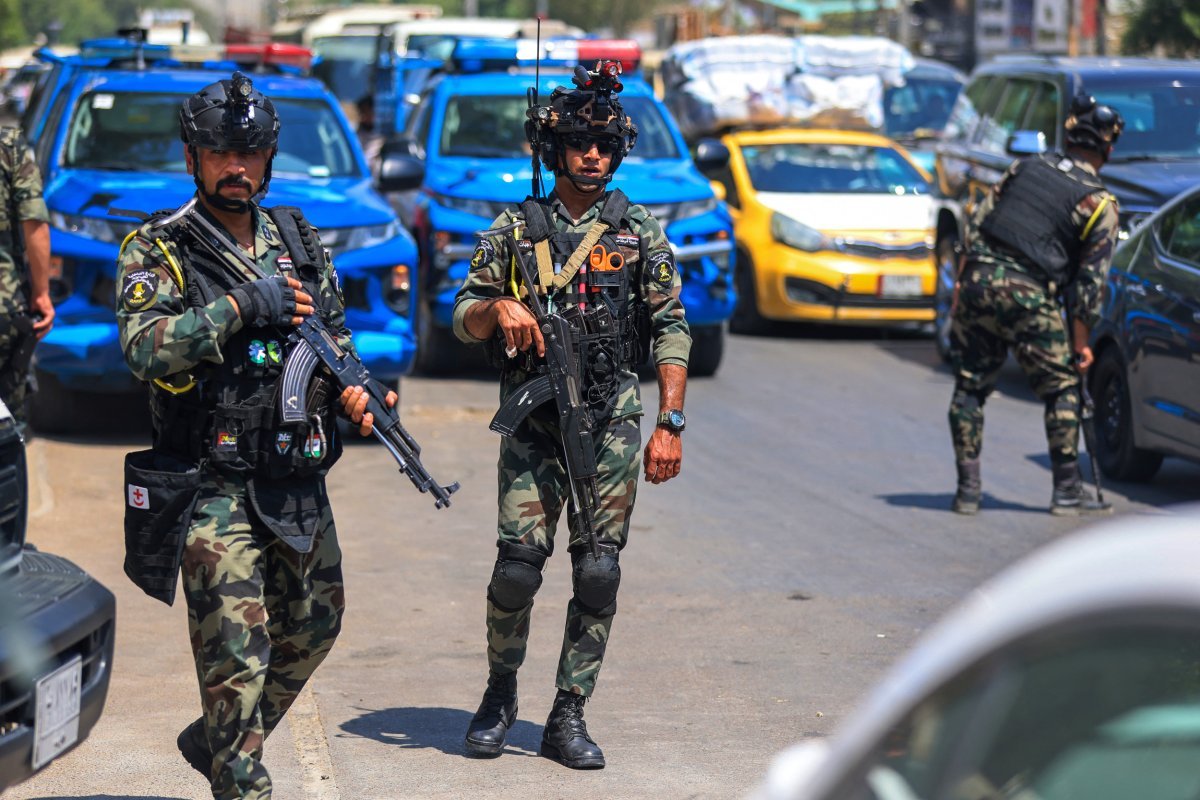
It feels like the Middle East is on edge once again. Tensions are rising, and this time, the stakes are higher than ever. Following a stern warning from Iran, the United States is preparing to evacuate its embassy staff from a key Middle Eastern country. While the exact location remains undisclosed for security reasons, sources suggest preparations are already underway. The U.S. government is not taking any chances, and history tells us they’re right to be cautious.
Background of US-Iran Relations
A History of Conflict
The tension between the U.S. and Iran is nothing new. Since the 1979 Islamic Revolution, relations between these two nations have been rocky, filled with threats, sanctions, and the occasional military standoff.
Recent Flashpoints
More recently, things escalated after the U.S. withdrew from the Iran nuclear deal in 2018. The killing of Iranian General Qasem Soleimani in 2020 only added fuel to the fire. Now, another chapter unfolds—one that could have serious consequences across the region.
The Current Warning from Iran
Nature of the Threat
Iran has reportedly issued a stern warning, citing increased U.S. activity in the region and accusing Washington of meddling in regional affairs. While the exact language of the threat remains classified, intelligence sources describe it as “credible and imminent.”
Iran’s Motives
Why now? Experts believe Iran is responding to a combination of increased sanctions, military exercises in nearby waters, and growing pressure on its nuclear program. It could be posturing—or it could be a serious step toward conflict.
Regional Response
Neighboring countries are monitoring the situation closely. Several Arab states have reportedly ramped up security around their own embassies and foreign installations.

Embassies and Evacuation Protocols
How Embassies Prepare for Threats
When things heat up, embassies go into high alert. Emergency action plans are dusted off. Staff are briefed. Non-essential personnel and dependents are the first to go.
Previous Evacuations in the Middle East
This isn’t the first time. Think back to Iraq in 2003 or Libya in 2012. In both cases, embassies were cleared out ahead of violence. The goal? Save lives.
The Role of Intelligence Agencies
Behind the scenes, agencies like the CIA and NSA gather intel, monitor chatter, and give the green light when it’s time to move. In this case, they’ve sounded the alarm.
Details on the US Embassy’s Evacuation Plans
Timeline and Preparations
Though no official timeline has been released, military aircraft are reportedly on standby. Security around the embassy has been tightened, and evacuation drills have begun.
Diplomatic Implications
An evacuation signals more than just safety concerns—it sends a political message. It tells the world that the U.S. no longer considers the situation manageable via diplomacy.
Impact on American Citizens Abroad
Americans living in the region are being urged to register with the U.S. State Department and consider leaving voluntarily. Commercial flights may soon be overwhelmed.

Reactions from the International Community
Allies’ Support
Allies like the UK, France, and Germany have voiced concern and are reviewing the safety of their own diplomatic staff. Some may follow suit with evacuations.
United Nations’ Involvement
UN officials are calling for calm and encouraging both sides to engage in dialogue. Behind closed doors, there’s growing fear of another prolonged Middle East crisis.
Media and Public Perception
News outlets are buzzing, and social media is flooded with speculation. Some see this as another round of political theater—others are bracing for real conflict.
What This Means for the Middle East
Escalation Risks
If the situation spirals out of control, it could drag neighboring countries into the conflict. Think Syria, Yemen, or even Israel being forced to take sides.
Impacts on Trade and Oil
The Strait of Hormuz—a vital oil transit route—is in the spotlight. Any disruption there could send oil prices skyrocketing and shake global markets.
Political Fallout
This could shift alliances and put pressure on already fragile governments in the region. Nobody wants a repeat of past destabilizations.
Iran’s Strategy in the Region
Use of Proxy Groups
Iran has a history of leveraging proxy forces like Hezbollah and the Houthis. Some analysts worry these groups may act independently, triggering a larger conflict.
Nuclear Concerns
Iran’s nuclear program remains a hot-button issue. Could this be a distraction? Or is it a move to gain leverage in stalled negotiations?
Diplomatic Leverage or Provocation?
It’s hard to tell whether Iran is bluffing or baiting. Either way, the tension is real, and the consequences could be far-reaching.
The US Government’s Response
Military Readiness
Troop deployments have increased across U.S. bases in the region. Naval forces are on high alert, and air patrols have intensified.
Presidential Statement
The U.S. President has urged calm but made it clear: any attack on American personnel will be met with “swift and decisive” action.
Congressional Oversight
Congress is now involved, with several lawmakers calling for transparency and demanding briefings on the situation.
Security Measures and Precautions

Security Measures and Precautions
Embassy Security Enhancements
Concrete barriers, added surveillance, and heavily armed guards are now the norm. The embassy compound is essentially a fortress.
Local Cooperation
Host countries are working with U.S. forces to secure embassies. Still, loyalty in volatile regions can be shaky.
Travel Advisories
The State Department has issued a Level 4 “Do Not Travel” warning for the area, advising citizens to stay away.
Potential Outcomes
Diplomatic Solutions
There’s still hope. Talks may resume behind closed doors. Cooler heads could prevail—if both sides are willing to compromise.
Possibility of Escalation
On the flip side, one wrong move could spark a regional war. History has taught us how fast things can escalate in the Middle East.
A New Cold War in the Middle East?
Some believe we’re entering a new era—where proxy battles, cyber warfare, and diplomatic standoffs become the new norm.
Expert Opinions
What Analysts Are Saying
Most experts agree this is the most serious flashpoint since 2020. The risk of open conflict is high, but not inevitable.
Think Tank Perspectives
Think tanks are divided. Some call for immediate de-escalation. Others believe a strong response is needed to contain Iran’s ambitions.
Military Expert Predictions
Veterans and retired generals warn that any miscalculation could lead to American casualties and long-term military entanglements.
The Human Element
Voices from American Diplomats
Inside sources say morale is shaky but professional. Many diplomats are torn—dedicated to their mission, but worried for their safety.
Stories from Local Staff
Local embassy workers are often caught in the middle. For them, evacuation means possible unemployment—or worse.
Families in Limbo
Families of embassy staff are being relocated to safe zones. It’s a stressful, uncertain time for everyone involved.
Moving Forward: What’s Next?
Calls for Peace
Activists and global leaders are pleading for diplomacy. War, they say, benefits no one.
Diplomatic Initiatives
Backchannel talks may already be in progress. Regional powers like Qatar and Oman could play key mediation roles.
Long-Term Outlook
Whether this ends in peace or chaos remains to be seen. But one thing’s clear: the world is watching—and hoping for the best.
The U.S. Embassy’s evacuation preparations are a stark reminder of how fragile peace in the Middle East really is. With tensions flaring, both sides stand at a crossroads. Will diplomacy win the day, or are we headed for yet another crisis in a region already drowning in them? Only time will tell, but for now, the world holds its breath.
FAQs
1. Why is the US embassy evacuating now?
Due to credible threats issued by Iran and increased regional tension, the embassy is taking precautionary steps to safeguard its personnel.
2. How serious is the threat from Iran?
The threat has been deemed credible and potentially imminent, according to U.S. intelligence sources.
3. What does this mean for Americans in the Middle East?
Americans are advised to exercise extreme caution and consider leaving the region while commercial travel is still available.
4. How often do embassy evacuations happen?
Evacuations are rare but not unprecedented. They usually occur during armed conflicts or when threats to diplomats escalate.
5. What can we expect next in US-Iran relations?
Expect a tense period of diplomacy, strategic posturing, and hopefully, behind-the-scenes efforts to de-escalate the situation.

